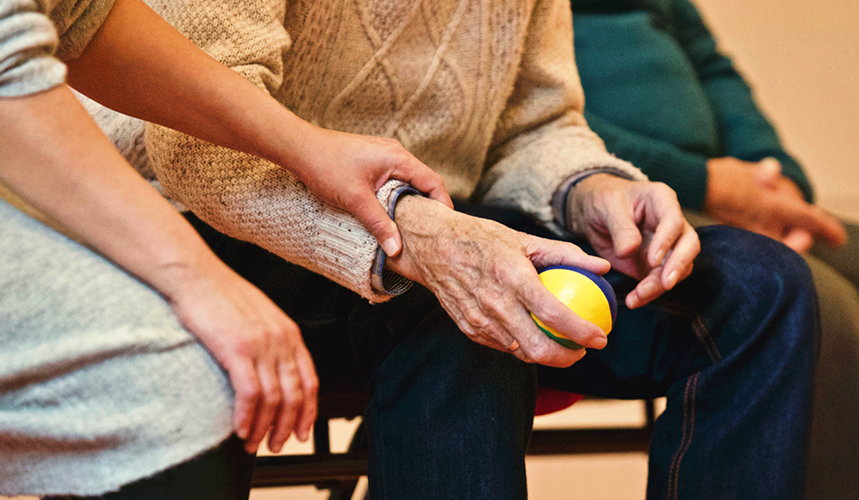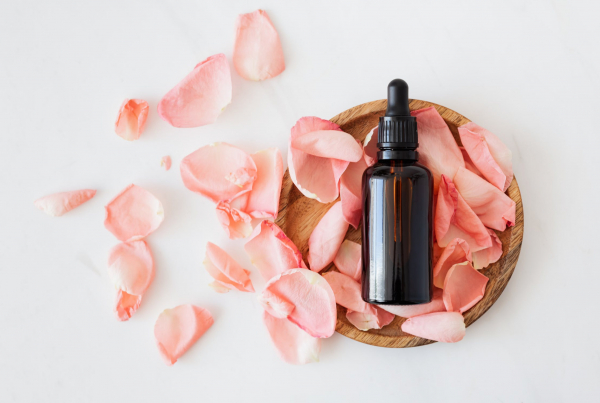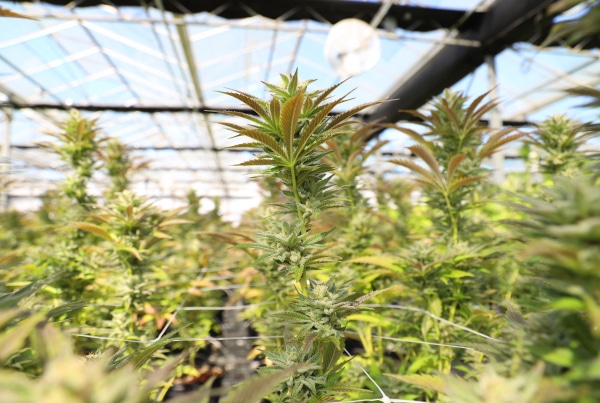
Disclaimer: This content is not intended to be a substitute for professional medical advice, diagnosis, or treatment. Always seek the advice of your physician or other qualified health provider with any questions you may have regarding a medical condition.
Arthritis is a common chronic health condition that refers to a number of distinct (but related) illnesses. By definition, it refers to a disease that causes joint inflammation and pain, often affecting the weight-bearing parts of the body. The common parts where arthritis is likely to attack are the spine, hips, and knees.
However, other areas, such as the fingers, wrists, and toes, are also prone to attack. While the chronic joint pain is often resistant to pain management therapies, studies suggest that cannabis helps with arthritis pain and inflammation.
Cannabis And Arthritis 101

Contrary to what many people believe, arthritis can affect anyone of any age, from the very old to the very young. As a chronic condition, arthritis has no single cure. Instead, a selection of different medications and therapies are often prescribed to help manage the symptoms. If arthritis progresses unchecked, it can lead to impairment of movement and other body functions over time.
Numerous research and studies on medicinal cannabis brought to light its many health benefits. These benefits contributed to its increasing recognition as medication and growing legalization in the US. Here, we’ll discuss how cannabis helps with arthritis. We’ll lay out how the properties of medical cannabis can be applied to different types of arthritis to successfully alleviate symptoms.
Benefits Of Cannabis + CBD For Arthritis

Arthritis is extremely common in the United States alone, 23% of all adults (over 54 million people) have arthritis. Arthritis refers to more than 100 diseases and conditions that affect the joints including rheumatoid arthritis, osteoarthritis, lupus, and gout. Pharmaceutical medications like narcotics, steroids, and injections are often used to treat arthritis, but they often have harmful side effects and can even result in dependency. That’s why so many people turn to CBD in hopes of managing the pain and inflammation associated with their arthritis naturally.
How does cannabis help with arthritis? Let’s start with the basics. You’ve probably heard quite a bit about THC, the psychoactive cannabinoid, but CBD is gaining popularity for its vast array of therapeutic benefits. Unlike THC, CBD doesn’t produce psychoactive effects. Instead, some evidence suggests that CBD works on anti-inflammatory and analgesic pathways in the body to supply relief to those suffering from pain. Some companies even design anti-inflammation CBD.
Cannabis offers a safer and more natural approach towards managing different types of arthritis and the symptoms accompanying them due to its useful components. There are numerous ways you can consume Cannabis, depending on your preference. For pain in the joints, you may apply CBD Oil creams and gels on the skin, such as cbdMD’s topical inflammation blend. In fact, most of cbdMD’s products can be utilized to relieve pain.
You can also ingest CBD by taking capsules or tinctures orally. We like SeaBeDee’s inflammation tincture oil.
Furthermore, you can have a bath rich in CBD products for extra refreshment. Check out our guide to CBD bath products for some inspiration.
To manage your arthritis and any other medical condition, ensure you get the best CBD products available in the market from licensed sellers.
In fact, according to the California organization Project CBD, a non-profit “dedicated to promoting and publicizing research into the medical uses of cannabidiol (CBD),” the uses of CBD go way beyond simple pain relief.
“Scientific and clinical research—much of it sponsored by the US government—underscores CBD’s potential as a treatment for a wide range of conditions, including arthritis, diabetes, alcoholism, MS, chronic pain, schizophrenia, PTSD, depression, antibiotic-resistant infections, epilepsy, and other neurological disorders.”
CBD affects your immune system, which makes it natural for applications in autoimmune conditions like rheumatoid arthritis—and the science doesn’t lie. A study published in the journal Rheumatology from Dr. Sheng-Ming Dai of China’s Second Military Medical University found that CB2 receptors are found in unusually high levels in the joint tissue of arthritis patients, making them more sensitive to the effects of cannabinoids like CBD. The use of cannabis is shown to fight inflammation in the joints by activating the pathways of these CB2 receptors.
It’s not just CBD that can lend a helping hand, either: “Chronic pain is a symptom of rheumatoid arthritis, and when it comes to chronic pain, we have 9,000 patient-years of data showing that THC [the active ingredient in cannabis] effectively treats it,” says Jahan Marcu, Ph.D., the Chief Scientific Officer for Americans for Safe Access, an organization devoted to the legalization of cannabis for therapeutic use.
Marcu continues, saying, “Cannabinoids stop the transmission of pain and decrease inflammation, and that’s very important for people with joint issues.” On a basic level, THC is anti-inflammatory and analgesic (it alleviates pain and the inflammation it’s often caused by), and it’s also known to reduce the anxiety and depression that often comes with chronic illness (especially ailments that are cause a loss of mobility, like rheumatoid arthritis).
Have you ever read about how smoking weed can cause seizure patients to physically relax and resume more normal brain function? Based on similar physiological principles, people with chronic pain and stiff joints may find that their body naturally loosens when using marijuana
Essentially, all of these scientific studies support one of the key principles of medicinal marijuana: both non-psychoactive CBD and psychoactive THC work wonders for those suffering from joint pain.
Cannabis Acts as a Powerful Anti-Inflammatory
The two cannabis components (called cannabinoids) primarily responsible for the anti-inflammatory role of medical marijuana are cannabidiol (CBD) and caryophyllene. These two components differ from tetrahydrocannabinol (THC): they are not psychoactive, meaning that consuming them won’t cause a “high.” Caryophyllene and CBD function by activating the CB2 receptors, both directly and indirectly. These receptors are among the numerous receptors found in the endocannabinoid system.
The endocannabinoid system is responsible for many vital regulatory functions within the body, such as sleep patterns, hunger and satiety, mood, immune response, temperature, pain perception and signaling, and inflammatory response. By acting on these receptors, medical cannabis can help to reduce the swelling associated with arthritis.
Science backs up the anecdotal reports of patients as well. A recent study demonstrated that the cannabinoids found in cannabis are up to 20 times more effective compared to aspirin at curbing inflammation. Additionally, THC can help in suppressing inflammation as it changes critical molecules during metabolism by the body.
Cannabis Helps to Manage Osteoarthritis (OA)
The term “osteoarthritis” refers to the damage of joint tissues (often over time, though causes vary). This damage can cause pain, and occurs when the cartilage wears off of the ends of bones, causing them to grind against each other. In healthy joints, the elastic cartilage serves to prevent these bone ends from friction against each other. In its absence, joints become painful, swollen, and stiff.
CBD oil, which can be derived from both marijuana and hemp, aids in the reduction of joint pain by acting as an anti-inflammatory and analgesic. CBD, and therefore cannabis, helps with arthritis pain by dulling pain perception and reducing the inflammation causing it. It also acts as a neuroprotectant, helping to prevent damage to nerves in osteoarthritic joints.
CBD also carries an added benefit for sufferers of rheumatoid arthritis (or RA). It works to suppress T-cell function, a major cause of the progression of RA (an autoimmune disease that causes the body to attack its own tissues). CBD can reduce this destruction of cartilage and joint tissues, protecting the body from further damage.
Cannabis Eases Anxiety & Depression
Arthritis is closely connected to anxiety and depression. This is because any form of arthritis can cause debilitating pain that can lead to feelings of despair. Also, anxiety and depression can worsen your arthritis. Thus, by managing anxiety and depression, you are on your way to curbing some of the common signs of arthritis.
Rates of anxiety and depression vary in people with arthritis depending on factors. Some of the factors include the size of the population under study. Generally, the data points to the presence of anxiety and depression in two people among ten with arthritis. It is easy to understand why this pain has depressing effects on an individual.
People with medical cannabis prescriptions in many countries are allowed to grow their own hemp plants. Authentic sources such as ILGM US seed bank and many other stores have been allowing patients to grow these plants and utilize their pain-relieving effects to treat their severe anxiety caused by chronic pain.
CBD oil is rising in popularity due to its effectiveness in helping ease mental health problems such as anxiety and depression. It does this by engaging with the brain’s receptors. CBD triggers the release of serotonin, a neurotransmitter responsible for regulating social behavior and mood. The effectiveness of CBD in calming anxiety can be seen in its reduction of social anxiety symptoms among people with a social anxiety disorder. The consumption of CBD oil not only reduced the anxiety in these patients but also altered how their bodies responded to stress.
Cannabis Helps with Arthritis & Sleep
Sleep deprivation is very prevalent among people with arthritis, affecting over 80% of sufferers across all types. It is mostly due to the stiff and aching joints, which makes it hard to get comfortable, fall asleep, and sleep through the night.
Poor sleep can increase your arthritic pain and also expose you to the likelihood of developing depression and disability. Sleep disruption affects pain. It is because sleep disruption leads to abnormalities in pain processing and its pathways. Hence, arthritis patients end up having a tougher time trying to sleep.
You can use CBD for sleep to ease your anxiety, relieve your pain and inflammation, and it also interacts with melatonin in your system. Melatonin is a hormone produced by the pineal gland in the brain. Melatonin is sometimes referred to as the ‘darkness hormone’ because its production is triggered by darkness. The anxiolytic and hypnotic effects of CBD help reduce emotional and subconscious anxiety. Its anticonvulsant effects create a sense of relaxation in the body by minimizing muscle tension. Thus, the combination of CBD and melatonin can be very beneficial in improving sleep for people with arthritis.
How To Use CBD For Joint Pain And Arthritis

When formulating a CBD regimen for a specific disease or illness like Arthritis, it’s important to understand that CBD should be used regularly for maximum relief. Meaning it should be used as a preventative first – it can also be used to manage acute symptom flare-ups, but preventative maintenance is most important! Think about it like any other dietary supplement or medication, you want to establish a baseline concentration in your system.
Recommended CBD Regimen for Arthritis
In order to manage the symptoms associated with various types of arthritis, we recommend using a multi-prong approach that relies on ingesting oral CBD and applying CBD locally in the form of a topical salve for maximum relief. We suggest ingesting full spectrum CBD oil daily in the form of Tinctures or Gel Capsules. The ingredients in the two products are the same; the only difference between the two is the form factor and dosage – pills vs. sublingual tinctures.
We suggest those suffering from Arthritis start with 15mg per day of CBD. If relief is not felt at this dosage, we suggest increasing by 5-10mg until the desired effects are achieved. You’ll notice that the Gel Capsules are pre-filled and contain either 15mg or 25mg of CBD per pill. There is no harm in starting above the 15mg CBD threshold as you cannot overdose on CBD, nor are there any serious side effects.
These ingestible products provide sustained symptom relief for several hours – many people find they provide relief for the whole day! The one thing to keep in mind with ingestible CBD products is the delayed onset time – it can take up to 90 minutes for the full effects of the tinctures or capsules to be felt.
We recommend supplementing the orally ingested CBD oil with a CBD-infused topical salve. Salve should be applied directly to the affected area to reduce pain and inflammation. The effects of the salve should be felt very quickly, simply re-apply as needed.
Managing Acute Symptom Flare-Ups
In addition to the daily arthritis management program outlined above, many people find they still need a safe way to manage acute flare-ups. Regardless of the triggers, we recommend vaporizing CBD to combat these acute arthritis flare-ups. The benefit of vaporizing or dabbing CBD is that the relief can be felt almost instantaneously. We suggest either the 99% pure CBD isolate or the pre-filled CBD vaporizer cartridges because they provide a wave of relief that can be felt throughout the whole body.
You can also apply the additional topical salve, or ingest more CBD in the form of tinctures or pills to combat these episodes; just keep in mind that the onset time will be significantly longer than vaporizing.
What is the correct CBD dosage to help treat arthritis?
Finding the best dose for you is an independent process that requires attention to unique biological factors, like your weight, condition, and severity of symptoms. Also, your tolerance to cannabinoid-based medicines will play a role in the amount of CBD needed to experience full relief.
We suggest those who wish to try CBD for arthritis start with 15mg per day of CBD. If this dosage doesn’t alleviate symptoms, we suggest increasing it by 5-10mg until the desired effects are achieved. A CBD tincture makes this easy since you can adjust the dose by small increments.
Alternatively, CBD gel capsules are pre-measured, so starting with the lowest dose (like a ten-milligram capsule) is often the best way to go. feel free to start with the standard dose offered by the CBD capsules you choose, because you can’t overdose on CBD and there are no serious side effects.
After establishing a baseline dosage, you can increase as needed to control symptoms. As you adjust your dose it’s important to note the delayed onset time of these ingestible products. It can take up to 90 minutes to experience the full effect of tinctures or gel capsules. Of course, the slow onset translates to long-lasting effects. Many people report that the effects from CBD tinctures and capsules provide relief that lasts all day!
Dosing for topical products is different, as each topical product contains a different concentration of CBD. Choose a product strength depending on the severity of your condition and then apply as needed to manage pain flares.
CBD vaporizers are a bit different in that it can be difficult to accurately measure how much you ingest. However, CBD vaporizers take effect quickly, so it’s easy to monitor effects before increasing your dose. Simply take one puff and wait ten minutes for the full onset of effects. From there you can decide if more CBD is necessary and quickly stack on another fast-acting puff.
Methods Of Using CBD For Arthritis

One thing’s for sure: for those suffering from chronic pain in their joints, a little bit of chronic can go a long way. Give CBD a shot — you might love the effects, and the worst-case scenario is that nothing will happen at all. We rely on CBD after every ski day, backpacking trip, and work out—there’s just nothing better from a natural pain relief and relaxation standpoint.
Smoking or Vaping
You can use CBD vape oils (just look out for propylene glycol!) or even raw organic hemp flower (like Lifter strain from Canna Comforts), which can be vaped or smoked, to receive a fast-acting dose of CBD for expedient symptom relief.
This is often the easiest way to get CBD, especially if you’re in a state with less-than-hospitable marijuana laws, as you can have the products discreetly shipped to your home. Be sure to check out our CBD consumption guide to figure out the best method of CBD intake for you.
Topical Salves
Much like IcyHot or Tiger Balm, a topical CBD salve will help relieve pain from your joints and muscles. Of course, these are easily found in dispensaries in legal states, but likely need to be ordered online in states without a legal cannabis program in place.
Worry not, you can buy a salve specifically designed for joint pain management and have it safely, legally, and discreetly shipped directly to you. A couple of our favorites are the very pleasant Arnica Pain Cream from Serene CBD and the very effective CBD Freeze Pain Relief Roll-On from cbdMD.
We also love using CBD soap every day to help keep our finger dexterity youthful.
Sample Each Strain Type
Sativas, indicas, and hybrids all have their strengths and weaknesses. Sample different strains, much like a wine-tasting, and see what works. You’ll be surprised at the sensation supplied by CBD-heavy strains—they’re calming, relaxing, with a powerful soothing effect that is a blessing for those with sore muscles and painful joints. If you live in a state without medical cannabis, don’t worry!
You can still reap the benefits of whole-flower, full-spectrum CBD strains with raw hemp flower. Our favorite hemp flower source is Canna Comforts — their organic, batch-tested strains provide a broad range of cannabinoid compositions, creating an option for every need and purpose.
Experiment with THC and CBD Ratios
If you’re buying your cannabis from a dispensary, you’ll notice that they typically list both the THC and CBD contents. Heavy-hitting, THC-dominant strains are often in the 20-25% range but may contain a negligible trace of CBD.
Alternatively, CBD-dominant strains may have 10+% CBD and little to no THC at all. There are also blends and hybrids that meet somewhere in the middle. Our favorite high-CBD strain is Lifter from Canna Comforts.
Tinctures
Nothing says old school like using a consumption method that’s been relied on for thousands of years. Though hilariously old-fashioned, the method is still incredibly effective and one of our personal favorites – a tincture can be just the ticket for your joint pain.
The effects of tinctures last much longer than those of CBD that is inhaled through smoking or a vape — they can even provide some people with all-day symptom relief.
Study Results On CBD For Arthritis
The discovery of CBD is a phenomenon that can be dated back nearly a decade, but unfortunately research efforts regarding its health potential didn’t start rolling out until much more recently.
Now, researchers have enough evidence of the endocannabinoid delivery system’s involvement in processes of inflammation and pain to suspect a direct link between CBD and arthritis symptoms. Research is only at its start, but is expected to incline rapidly with advancing legislation and consumer interest.
Most of the research regarding the use of CBD for arthritis involves mice, but there are also reports of human experience with CBD for symptoms of arthritis. Research dives into the impact of CBD for both major types of arthritis conditions, including osteoarthritis and rheumatoid arthritis, and confirms that CBD has similar therapeutic potential for both.
Plus, research suggests that cannabidiol is potentially useful for using as a preventative measure as well as for treating pain and inflammation due to arthritis on the spot. One study even suggests that CBD may prevent nerve damage by preventing inflammation, which means CBD could help reduce the long-lasting, severe effects that arthritis can have over time.
Research regarding the endocannabinoid system and its role in key processes that regulate inflammation and pain that is caused by arthritis or related conditions provides a solid foundation for future research efforts. Research efforts regarding CBD for arthritis are expected to continue to incline, and many CBD brands utilize this new knowledge to create a variety of different CBD products designed to target arthritis-related discomfort. The following studies help illuminate the connection between CBD and arthritis:
1. Cannabidiol is an oral anti-arthritic therapeutic
A 2000 study looked at the therapeutic potential of cannabidiol (CBD), the major non-psychoactive component of cannabis, in murine collagen-induced arthritis (CIA). “CBD was administered after the onset of clinical symptoms, and in both models of arthritis, the treatment effectively blocked progression of arthritis. CBD was equally effective when administered i.p. or orally. The dose dependency showed a bell-shaped curve, with an optimal effect at 5 mg/kg per day i.p. or 25 mg/kg per day orally. Clinical improvement was associated with protection of the joints against severe damage. Taken together, these data show that CBD, through its combined immunosuppressive and anti-inflammatory actions, has a potent anti-arthritic effect in CIA.”
Learn more: https://www.ncbi.nlm.nih.gov/pubmed/10920191
2. Preliminary assessment of cannabis for rheumatoid arthritis
A 2006 study assessed the efficacy of Sativex, a cannabis-based medicine containing a 1:1 ratio of THC to CBD, in the treatment of pain due to rheumatoid arthritis. “In the first-ever controlled trial of a cannabis-based medicine in arthritis, a significant analgesic effect was observed and disease activity was significantly suppressed following Sativex treatment.”
Learn more: https://www.ncbi.nlm.nih.gov/pubmed/16282192
3. Expression of cannabinoids in rheumatoid arthritis
A 2014 study found that CB2 receptors are found in unusually high levels in the joint tissue of arthritis patients, making them more sensitive to the effects of cannabinoids like CBD. The use of cannabis is shown to fight inflammation in the joints by activating the pathways of these CB2 receptors.
Learn More: https://academic.oup.com/rheumatology/article/53/5/802/1798167
4. Transdermal cannabidiol reduces inflammation
A 2015 study looked at the efficacy of applying CBD via a transdermal patch as opposed to orally. “Transdermal CBD gel significantly reduced joint swelling, limb posture scores as a rating of spontaneous pain, immune cell infiltration and thickening of the synovial membrane in a dose-dependent manner. These data indicate that topical CBD application has therapeutic potential for relief of arthritis pain-related behaviors and inflammation without evident side-effects.”
Learn More: https://www.ncbi.nlm.nih.gov/pmc/articles/PMC4851925/
5. Attenuation of early phase inflammation
Here we analyze a 2017 study: “Osteoarthritis (OA) is a multifactorial joint disease, which includes joint degeneration, intermittent inflammation, and peripheral neuropathy. Cannabidiol (CBD) is a non euphoria producing constituent of cannabis that has the potential to relieve pain. The aim of this study was to determine whether CBD is anti-nociceptive in OA and whether inhibition of inflammation by CBD could prevent the development of OA pain and joint neuropathy. The data presented here indicate that local administration of CBD blocked OA pain. Prophylactic CBD treatment prevented the later development of pain and nerve damage in these OA joints. These findings suggest that CBD may be a safe, useful therapeutic for treating OA joint neuropathic pain.”
Learn More: https://www.ncbi.nlm.nih.gov/pmc/articles/PMC5690292/
6. Cannabidiol reduces acute arthritis in rats
A 2011 study evaluated the effects of CBD on lab rats with arthritis and found that CBD reduces pain by affecting the way the body responds to pain-inducing stimuli. The study concluded, “This study clearly shows that atypical cannabinoid receptors are involved in joint nociception and these novel targets may be advantageous for the treatment of inflammatory pain.”
Learn More: https://www.ncbi.nlm.nih.gov/pubmed/21683763
Essentially, all of these scientific studies support one of the key principles of medicinal marijuana: both non-psychoactive CBD and psychoactive THC work wonders for those suffering from joint pain. Several studies have validated CBD’s efficacy as an anti-inflammatory and pain-relieving option for managing arthritis.
A Note About CBD And Drug Interactions
Cannabidiol has been labeled safe by many leading organizations, including the World Health Organization. However, it is important to consider the unique characteristics of your health and wellness routine in order to determine any potential risks.
One common concern is the risk of drug interactions between CBD and prescription medications. This is because CBD is metabolized by the same liver enzymes as the majority of other drugs, or the cytochrome P450 liver enzyme group. As CBD passes through the liver, it may reduce the number of these enzymes available for metabolizing other substances, reducing the efficacy or some medications.
Interactions could include many of the prescription medications taken for arthritis, like opioids, which act metabolized by the same liver enzymes.The interaction between these medications is not severe unless the medication is prescribed to treat life-threatening symptoms. CBD may only lower the amount of the medication that is able to reach the bloodstream.
On that note, this effect is only temporary. Many people find that there is no significant reaction between CBD and their regular medications. You may also be able to avoid interactions by taking CBD at a separate time than other substances. If you are concerned about drug interactions or already take daily medications, you should talk to your doctor about CBD to help get you started.
CBD & Drug Testing
If drug testing is a part of the conditions of your employment, you might be concerned about the potential of CBD to cause you to test positive for THC. This isn’t an unfounded concern — however, there isn’t exactly a cut-and-dry way to answer it.
Much of the data we have about CBD is anecdotal, and its potential impact on drug testing is no exception. There are very few peer-reviewed studies on the subject, but there appears to be a small risk of a false positive for some users. Avoiding full-spectrum products containing traces of THC can reduce your risk of a false positive, but that may not eliminate the risk entirely.
If you are concerned about passing a drug test, you should consider this potential risk when deciding whether CBD is right for you.
To learn more about the science of CBD and drug testing, check out our article for a more thorough discussion of how to minimize your risk of a false positive.












